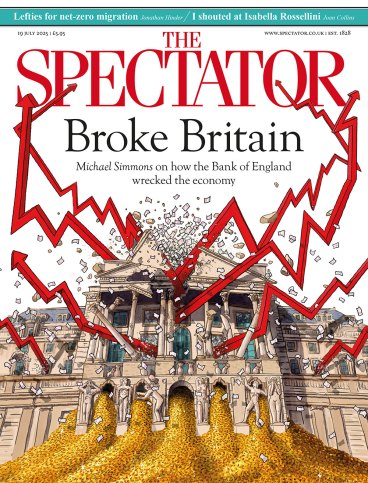
Alexander Starritt has form with satire. His 2017 debut The Beast skewered the modern tabloid press, drawing comparisons with Evelyn Waugh’s Scoop. For his third novel, Drayton and Mackenzie, he is back at it, mercilessly mocking everything from Oxbridge and management consultants to tech bros and new parents in a story that hinges on whether two unlikely friends can make a success of their tidal energy start-up. It’s more fun that it sounds.
The narrative opens in the early 2000s with James Drayton – someone who gets his kicks by finishing his maths A-level exam in 20 minutes and who finds undergraduate life disappointingly basic. ‘He supposed he’d been naive to think of university as concerned with intellect… At this level, Oxford was just an elementary course in information-processing, a training school for Britain’s future lawyers, politicians and administrators,’ writes Starritt, using the omniscient voice.
Lest this seem too obnoxious, James is self-aware enough to realise that finishing his exams so quickly meant ‘he would have to leave the exam room alone while the rest of his class stayed inside together’. One of Starritt’s many skills is how he ratchets up the poignancy, creating real characters rather than caricatures.
The yang to Drayton’s yin comes in the form of Roland Mackenzie, an Oxford slacker who scrapes a 2:2. They’re at the same college but barely clock each other. Later, when James is the subject of articles and interviews, he will be asked if it’s true that they were both in the same rowing boat. ‘James didn’t notice him at the time.’ After Roland takes a gap year or two teaching in India, he somehow winds up at McKinsey, working alongside James. Roland finds it catastrophically boring. ‘But even that he quite enjoyed, since the boringness was so authentic, like going to New York and it being just like the movies.’
As the duo strike out on their own, seeking to disrupt electricity generation with a scheme to turn tidal power into light, at least initially, Starritt’s granular detail over 500-odd pages skirted a similarly fine line between boring me and impressing me with its authenticity. There are even cameos from the central bankers Ben Bernanke and Mario Draghi as the world economy tanks, although the step-by-step exposition in these chapters is overkill.
What with the emotion of the escalating bromance and making James someone ‘who hasn’t read a novel since university’, Starritt goes all out to hook the same sort of elusive male reader who lapped up Andrew O’Hagan’s tear-jerking Mayflies. And good luck to him. He certainly hooked me.








Comments